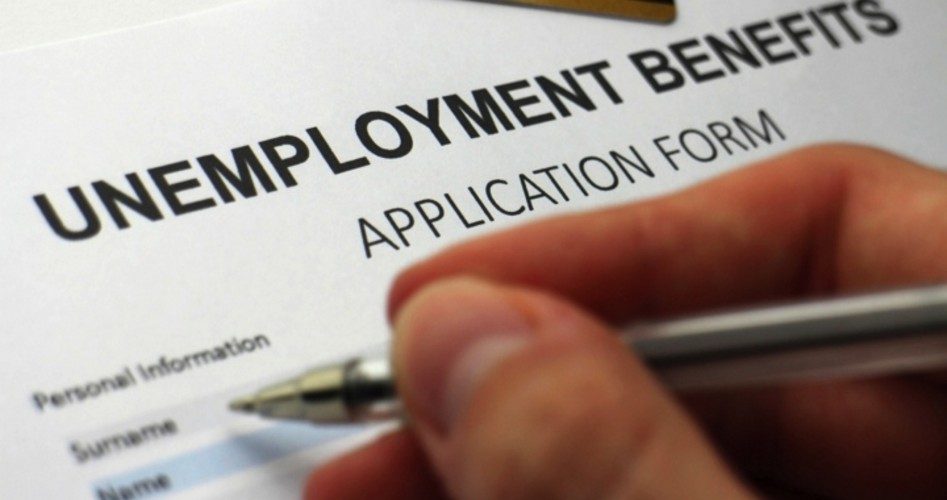
Federal unemployment benefits that continue for 26 weeks after a person uses up the 26 weeks of state unemployment benefits ended Saturday, so now some 1.3 million people won’t be getting their $1,166 (on average) monthly check. By June, another 1.9 million will be cut off.
Many in the federal government are talking about the need to extend benefits. President Obama labelled it an “urgent economic priority” and called a couple of senators to pressure them to bring the matter up when the Senate reconvenes next week, and is urging Congress to extend the benefits for another three months. Senate Majority Leader Harry Reid has promised a vote no later than January 7 for the three month extension. Gene Sperling, the head of Obama’s National Economic Council, lamented the end of the federal aid:
These are our neighbors, our community members and often fellow parents who depend on this as a temporary lifeline while they are actively looking for new jobs to support their families and make ends meet.
Never before have we abruptly cut off emergency unemployment insurance when we faced this level of long-term unemployment and it would be a blow to these families and our economy.
There’s the standard line: Families will be hurt, people won’t be able to find work without the assistance, the economy will sputter, and so forth. The line echoed from California to New York to New Jersey. In California, for instance, the unemployed received some $4.5 billion in federal largesse, “much of it plowed back into the local economy.” In New Jersey, some 90,000 recipients “will immediately lose out.”
Nothing was mentioned about where those benefits come from, or what impact on the economy those transfers would have. Those benefits come either directly from other taxpayers (who then have less to spend in the economy) or they are borrowed, which is a claim on future taxpayers who won’t have that money to spend. Or they are digitally manufactured by the Federal Reserve, thus inflating the supply of money in the economy, which reduces the value of everyone’s money. Call that a tax on everyone.
The program began under the George W. Bush administration as a supplement to state unemployment programs, and paid benefits for up to 99 weeks (that’s almost two years). It has routinely been extended using the poor economy as an excuse. The total cost to taxpayers since its inception exceeds $225 billion.
But now with the economy in a fitful recovery (the Great Recession having officially ended more than four years ago), continued payouts may be having a perverse effect: keeping people out of the workforce in favor of free money from Washington. Senator Rand Paul (R-Ky.) stated that continued extensions “aggravate rather than relieve unemployment.”
When the state of North Carolina reduced its unemployment payout earlier this year in both amount and time, something happened to prove the point: The state’s unemployment rate dropped, at least on paper, but the number of new jobs failed to increase. As the American Enterprise Institute (AEI) noted, “In other words, it looks like the cut in unemployment benefits moved people out of the labor force rather than into employment.”
In simple terms, it appears that many of those receiving checks were milking the system rather than using it to help them find work. Evan Soltas, an observer of North Carolina’s example, agreed: “Cutting unemployment insurance apparently hasn’t encouraged the unemployed to look harder for work. It has caused them to drop out of the labor force altogether.”
This matches the conclusion reached in a study done in 2008 by two Swedish investigators who asked, “Do unemployment benefits increase unemployment?” The answer is an unequivocal “yes:”
The evidence suggests that benefit generosity increases unemployment. We view this evidence as fairly robust since the estimates are similar [under different assumptions].
The magnitudes involved are rather substantial … an increase in [benefits] of 5 percentage points contributes to increasing unemployment by 25 percent.
In other words, the higher the benefits promised, the higher the unemployment becomes.
Sharon Poczter, writing in Forbes, wished that the government would take a different tack and concentrate instead on increasing employment opportunities rather than funding the unemployed. But even she got it wrong. Instead of reducing government interference in the workplace, she said the government must take a different, but still active, role:
[We need] an honest, frank attempt at addressing this economic and social issue through efficient government policy….
Policy solutions … like reallocation vouchers, tax incentives for businesses providing on-the-job training of [the unemployed] … should be subjected to cost-benefit analysis.
There is no such thing as “efficient government policy.” Everything government touches will generally result in lower growth, higher unemployment, higher taxes, and more intrusion. The present program, on its face, is immoral: the taking from those who have and transferring it to those who don’t. In addition, unemployment benefits hide the real employment rate, distort the labor market, and turn its beneficiaries into dependents.
As classical economist Henry Hazlitt explained:
Government relief tends constantly to get out of hand. And even when it is kept within bounds it tends to reduce the incentives to work and to save, both of those who receive it and of those who are forced to pay it.
It may be said, in fact, that practically every measure that governments take with the ostensible object of “helping the poor” has the long-run effect of doing the opposite.
Rather than restore those extended unemployment benefits, lawmakers should instead recognize this reality and move to reduce and then eliminate all federal subsidies for the unemployed. Let the states determine these programs, if such programs are deemed necessary. The elimination of benefits for those 1.3 million ought to be celebrated as the beginning of the end of such subsidies.
A graduate of Cornell University and a former investment advisor, Bob is a regular contributor to The New American magazine and blogs frequently at www.LightFromTheRight.com, primarily on economics and politics. He can be reached at [email protected]



